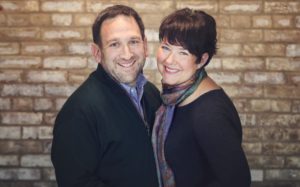July 13, 2021
Dear Cassie,
Today is your three year “Cancerversary,” a word that we didn’t even know existed in July 2018.
I can’t believe it’s been three years — in so many ways it feels like yesterday.
I can’t believe it’s only been three years – in so many ways it feels like an eternity has passed.
I’ll try to keep this short and sweet which you always say is best when it comes to writing. It helps that I’ve said all of this to you before but it feels important to say out loud again today.
Over these past 36 months, you have often said to me that “nobody understands what it’s like.” And as much as I try, I now get that it’s impossible to truly understand unless you are the one living with the diagnosis. After three years, what I have come to realize is that most of us (especially well-off white people) wake up in the morning and are some variation of “fine.” Some days we may be a little worse than fine. Other days, a little better. But most of the time we’re just fine. Not you or others with MBC though. You wake up every day feeling some version of “shitty.” Often it’s pretty bad. Sometimes not as bad. But it’s never not there. The shittiness is constant. It’s unrelenting. It’s heavy. And that’s a really hard way to live.
Yet you do it. I don’t know how, but you do it every single day. Wake up and not feel like yourself but still step into the world. Do so much and see so many people when you are frequently exhausted. Embrace life in the face of death. Live with the fear that every new ache, pain or discomfort might be something really bad but not let that fear define you. Own your reality by honestly sharing how you feel when people ask. Model what it means to live with vulnerability. I learn so much from you and continue to draw strength and courage from you even though I often feel like I should be providing all of that to you.
We have a big scan coming up and who knows what it will show. You’ve been feeling especially shitty lately and we are both worried. What I do know though, with absolute certainty, is that whatever comes (from this scan, the next, or one years from now) I am in it with you. We will hold hands. We will tell dark jokes. We will play gin and cribbage. We’ll stare at the river. We’ll walk Doc and make plans. We will live as fully as we can every single day. We will face whatever is to come together. I love you so much. Here’s hoping for many more Cancerversaries.
Love,
Dan
